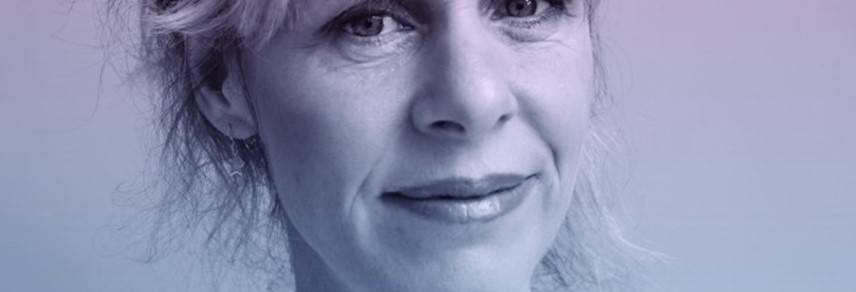
FIVE MINUTES WITH ALI HANAN
Ali Hanan is the founder of Creative Equals, an award-winning organisation championing diversity and inclusion in the creative industries. Aside from working with businesses to help them move forwards, its mission is to double the number of women in leadership roles over the next 24 months, as just 12% of creative directors in the UK are women. Hanan discusses Creative Equals’ newly launched Returners Programme, funded by a grant from HMRC
Creative Equals was one of the five companies to receive a grant from HMRC, and the only one in the creative industry, why do you think Creative Equals stood out?
Only 12% of creative directors are women. So when you start thinking about who is shaping the advertising we see, you can see why about 90% of women – and 55% of mums – feel advertising doesn't understand them. When we talk about 'unstereotyping creative work' we must start with the teams. At Creative Equals, we believe diverse teams shape diverse work for our diverse audiences, so currently we have to look at how we can really change this from 'who' is in the teams, what kind of lens they have on the work, and the authentic stories born out of the real lives they have to tell. Right now, just think about who is telling their own stories. To achieve this, we've partnered with D&AD and our key supporters, Facebook.
As a working mum yourself, have you ever experienced discriminating behaviours against you?
In short, yes, but my experiences are similar to many. And it’s not only about direct discrimination (not being given your old job responsibilities back, being passed over for progression, having your employer agree to part-time working then retract the offer, etc), there are also the subtle ones. The industry is the one that misses out here. Talent leaves. Women set up their own businesses. And our female audiences feel the work they see doesn't resonate.
That’s why creating this programme is a huge passion point of mine, as it's only by drawing attention to all these issues that we can create positive change, shift behaviours and spotlight this ferocious group of talents
What do you think is holding back women from seeking leadership roles?
This is a huge question and the answer to this is an entire thesis. Let me try and boil it down. The fact is women seek leadership roles all the time. The answer is more about what holds women back – and inherently – through our Equality Standard, we see bias in the entire system (not only for women, but also for other minority groups). Women are more likely to disagree with the comment 'someone in the senior leadership team has shown a genuine interest in my career' or know exactly what they do to progress. Unlike many sectors, creative careers are subject to how well you network or achieve within the (very biased) system. It depends on what account you are put on, if you have the chance to pitch (and win new business), if your work is put forward for awards, if you're given the right kind of training, whether you have the same kind of feedback as your male colleagues, if your portfolio is given the chance to develop equally (you don't just get put on the 'pink' brands) and so on. The bias in the system holds women back.
How do you think companies should tackle the issue of gender inequality?
Understand the barriers, blockers and experiences of women within their company (just 1-2% of creative directors are BAME women). We recommend all companies start by addressing this inequality through four lenses. First, are women 'safe' (is the shop floor free from sexist banter, inappropriate behaviour and equal opportunities for work)? Second, are women connected within the business (do they present at company meetings? Are their voices heard in every meeting? Are role models present?)? Third, do they have a future (are the career paths clear for them with an appraisal process free from bias)? Last, are they aligned to the purpose and values of the company, starting with messages from the leadership team (and how does this team communicate, champion and embody inclusive cultures?)
There are many different ways to tackle it but understanding what goes on every day on their own shop floors is the key to driving change.
Can you talk a bit about the ‘Returners Programme?’
According to the government about two million people (90% of them are women) are currently out of work on a parenting or caring break. About a million of them would like to come back to work, but in the creative industries many face barriers from recruiters (who are incentivised by commission), bias on their portfolios ('you're only as good as your last piece of creative work') and a lack of flexible working from businesses. Our aim is to create a bridge back to work as an eight-day knowledge programme, looking at what's new in creative, and giving businesses access to this incredible talent. We aren't just covering mums, however. Some of our applicants have been off with illness, PTSD or caring for relatives with dementia.
For more from Communicate magazine, follow us on Twitter @Communicatemag

